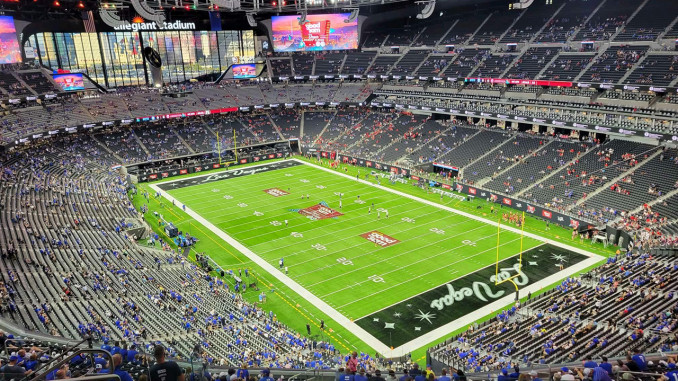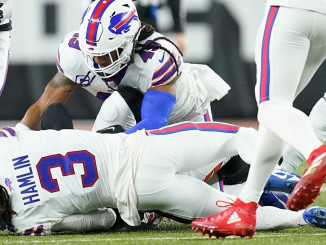
Every year, the Super Bowl is the one of the biggest events in the country. It’s not only the most-watched TV broadcast of the year, with over 60% of people in the United States seeing the game, but also the second-highest day for food consumption after only Thanksgiving. Between the appeal of the grand finale of the country’s most popular sport, the spectacle of the halftime show, and the simple joy of gathering with friends and family to eat and drink, it’s no wonder that the Super Bowl has become such a tradition for so many people. Many are predicting that superstar Taylor Swift’s presence at the 2024 Super Bowl in Las Vegas will elevate the event to a whole new level of popularity.
The Super Bowl’s outrageous popularity means that it also delivers the National Football League (NFL) outrageous profits, which are distributed to the billionaire owners of the league’s teams. Revenue from ticket sales, broadcasting rights, and other sources like parking and concessions net the NFL several hundred million dollars each year. The NFL alleges that the Super Bowl’s host city receives a massive boost to the local economy, using this promise of riches to convince cities to dedicate huge sums of public money to build new stadiums. Las Vegas’ new stadium, for instance, host of this year’s Super Bowl, was built with $750 million dollars from the local government. Along with demanding tax exemptions for all its expenditures in the host city, the NFL sends hundreds of additional demands to the local government. These include installing new cell phone towers around the stadium, free advertising and promotional time in the local media, exclusive use of dozens of private vehicles and buses, and reallocation of huge police, fire, and EMS crews – all at no cost to the NFL. Despite being leaked in 2014, these stipulations remain completely secret agreements between the host cities and the league—local residents do not even have the right to know about these tax-funded giveaways to the NFL.
Any additional revenue that does end up being produced by Super Bowl weekend will certainly not benefit the majority of residents in the city. Earnings from increased room rates at hotels, for example, go directly to owners and shareholders of corporate chains, not the housekeepers, receptionists, and other hotel workers. Analyses by economists show that all together, the economic benefit to cities is highly exaggerated by the NFL, allowing city governments a handy excuse for facilitating this deceptive extraction of public money.
And it’s not just the people who work and pay taxes in the host cities who must be exploited to make the Super Bowl happen. The players themselves are vulnerable to a host of brain injuries and other trauma that in many cases seriously compromise life expectancy.
In addition, until 2022, it was regular procedure for hundreds of the professional dancers contributing to the halftime show to go unpaid during not only the performance itself but also two weeks of rehearsals, a practice which was likely illegal in many states. This flagrant violation did not stop until social media controversy emerged from the NFL’s dismissal of a dancer who spoke up about the unfair arrangement.
The workers of the NFL’s cheerleading squads see even more extreme exploitation. Most earn substantially less than minimum wage, although a recent wave of lawsuits has guaranteed minimum wage in a few franchises. The Buffalo Bills, however, eliminated cheerleading altogether when the squad filed a lawsuit over working conditions in 2014. Cheerleaders also routinely face abusive and sexist rules like a fine for gaining as little as three pounds or for wearing sweatpants in public. In 2013, Washington Commanders cheerleaders were forced to appear topless in front of team sponsors and VIPs while their passports were being held by their bosses, and NFL cheerleaders are clear that, throughout the league, sexual harassment like this is a part of the job.
Working families deserve an opportunity to all get together with our friends, share food, maybe have a few drinks, and cheer for our team together. But in today’s world, such a celebration forces us to look the other way as the NFL franchise owners collect millions in profit from an event that is paid for by the gutting of our cities’ budgets and the brutal exploitation of the labor and bodies of the workers who make the spectacle happen. Let’s let ourselves enjoy the Super Bowl this Sunday – and then organize to make our society one in which the event of the year is truly something to celebrate.


